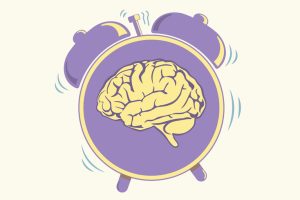Mental illness can affect anyone, regardless of age, race, or gender. One group that is often overlooked when it comes to mental illness are parents. Parents with mental illness face unique challenges that other groups may not have to deal with. In this article, we will take a look at the struggles that parents with mental illness face and how to find help.
Contents
- 1 Who Are Parents With Mental Illness?
- 1.1 What Are the Types of Mental Illness?
- 1.2 How Does Mental Illness Affect Parents?
- 1.3 Negative Impact On Children
- 1.4 How to Get Help?
- 1.5 What Can Parents With Mental Illness Do?
- 1.6 Treatment Options For Parents With Mental Illness
- 1.7 Parenting Tips For Parents With Mental Illness
- 1.8 What Can Children Do For Their Parents?
- 1.9 Benefits Of Helping Parents With Mental Illness
- 1.10 Helping Someone With Mental Illness
- 2 Conclusion
- 3 A Word From Therapy Mantra
Who Are Parents With Mental Illness?

Parents with mental illness can be of any age, race, or gender. However, they are more likely to be women than men. Women are also more likely to have a co-occurring disorder such as depression or anxiety. Some parents with mental illness may only experience a mild form of the illness, while others may struggle with a more severe form.
What Are the Types of Mental Illness?

There are many different types of mental illness, and each one affects parents in different ways. Some common mental illnesses include:
- Depression: A parent with depression may feel sad or hopeless most of the time, and may have difficulty enjoying activities they used to enjoy.
- Anxiety: A parent with anxiety may feel constantly worried or on edge, and may have difficulty sleeping or concentrating.
- Bipolar disorder: A parent with bipolar disorder may experience extreme mood swings, from intense happiness to deep sadness.
- Schizophrenia: A parent with schizophrenia may hear voices or see things that others do not, and may have difficulty distinguishing reality from fantasy.
- Posttraumatic stress disorder (PTSD): A parent with PTSD may feel constantly stressed or scared after experiencing a traumatic event.
How Does Mental Illness Affect Parents?

Mental illness can affect parents in a number of ways. Some common symptoms include:
- Feeling overwhelmed or stressed out most of the time: This can be due to the demands of parenting while also dealing with a mental illness.
- Having difficulty coping with normal everyday tasks: This may include having trouble taking care of oneself, handling money, or keeping up with housework.
- Having problems maintaining relationships: This can be due to the fact that parents with mental illness may be more irritable or emotionally unstable.
- Experiencing intense mood swings: This can be difficult for both the parent and their children.
- Having hallucinations or delusions: This can be very frightening for a child to witness.
- Feeling isolated from friends and family members: This may be due to the fact that parents with mental illness often feel ashamed or embarrassed about their condition.
Negative Impact On Children

Children of parents with mental illness are at risk for a number of negative outcomes. Some common problems include:
- Having lower academic achievement: This may be due to the fact that children of parents with mental illness may have more difficulty concentrating in school or completing homework.
- Experiencing behavioral problems: This may be due to the fact that children of parents with mental illness may be more likely to act out or engage in risky behaviors.
- Having a higher likelihood of developing a mental illness themselves: Up to 50% of children of parents with mental illness will develop their own mental illness.
How to Get Help?
If you are a parent with mental illness, it is important to seek help. There are many resources available that can help you manage your condition. Some helpful options include:
- Your doctor or therapist: These professionals can provide you with support and guidance as you deal with your mental illness.
- Mental health organizations: There are many organizations that offer support groups or counseling for parents with mental illness.
- Online resources: There are many websites and forums online that offer information and support for parents with mental illness.
- Parenting classes: Many communities offer parenting classes specifically for parents who have a mental illness.
- Support from friends and family members: It is important to have people in your life who understand what you are going through and can offer support.
It is important to remember that you are not alone. There are many people who understand what you are going through and want to help. Seek out the resources that work best for you, and don’t be afraid to ask for help when you need it.
What Can Parents With Mental Illness Do?

There are a number of things that parents with mental illness can do to improve their situation. Some suggestions include:
- Seek treatment for your mental illness: This is the most important thing you can do for yourself and your children. There are many treatments available that can help you manage your condition.
- Talk to your children about your mental illness: It is important for children to understand what their parent is going through. This will help them feel more comfortable talking about it if they experience any problems themselves in the future.
- Create a support system: Friends and family members can be a great source of support for parents with mental illness. Talk to them about what you are going through and ask for their help when needed.
- Take care of yourself: Make sure to get enough rest, eat healthy foods, and exercise regularly. This will help you feel better both physically and emotionally.
Parents with mental illness often face many challenges. However, there are many resources available to help them manage their condition. Seek out the resources that work best for you, and don’t be afraid to ask for help when you need it. You are not alone.
Treatment Options For Parents With Mental Illness
There are many treatment options available for parents with mental illness. Some of the most common treatments include:
- Medication: There are a number of different medications that can be used to treat mental illness. Your doctor will work with you to find the medication that is best suited for your needs.
- Therapy: Therapy is often an important part of treatment for mental illness. Therapists can help you manage your condition and learn how to cope with stressors in your life.
- Self-care: It is important for parents with mental illness to take care of themselves both physically and emotionally. This includes getting enough rest, eating healthy foods, and exercising regularly.
There are many treatment options available for parents with mental illness. Seek out the treatment that is best suited for you and your family. Don’t be afraid to ask for help when you need it. You are not alone.
Therapy Options
There are a number of different therapy options available for parents with mental illness. Some common therapies include:
- Cognitive-behavioral therapy (CBT): CBT is a type of therapy that focuses on changing the thoughts and behaviors that contribute to mental illness.
- Interpersonal therapy (IPT): IPT is a type of therapy that focuses on the relationships between people and how they affect mental health.
- Family therapy: Family therapy is a type of therapy that involves the entire family. It can help to improve communication and resolve conflicts within the family.
There are a number of different therapy options available for parents with mental illness. Talk to your doctor about what therapies might be best suited for you. Don’t be afraid to ask for help when you need it.
Medication Options
There are a number of different medications that can be used to treat mental illness. Your doctor will work with you to find the medication that is best suited for your needs. Some common medications include:
- Antidepressants: Antidepressants are often prescribed to treat depression, anxiety, and other mood disorders.
- Anti-psychotics: Anti-psychotics are used to treat psychotic disorders, such as schizophrenia.
- Anti-anxiety medications: Anti-anxiety medications are used to treat anxiety disorders.
There are a number of different medications that can be used to treat mental illness. Talk to your doctor about the best medication for you.
Self Help Strategies
There are a number of self-help strategies that can be useful for parents with mental illness. Some self-help strategies include:
- Journaling: Journaling can be a great way to express your thoughts and feelings. It can also help you track your progress over time.
- Yoga: Yoga is a mind-body practice that can help to improve mental health and well-being.
- Meditation: Meditation is a mindfulness practice that can help to reduce stress and anxiety.
There are a number of self-help strategies that can be useful for parents with mental illness. Talk to your doctor about the strategies that might work best for you.
Parenting Tips For Parents With Mental Illness
There are a number of parenting tips that can help parents with mental illness manage their condition. Some tips include:
- Be patient and understanding: It is important to be patient with your children and understand that they may not understand what you are going through.
- Set limits: It is important to set limits for your children and stick to them. This will help them feel safe and secure.
- Encourage positive behavior: Encourage your children to engage in positive activities, such as exercise, reading, and spending time with friends.
There are a number of parenting tips that can help parents with mental illness manage their condition. Talk to your doctor about the tips that might work best for you.
What Can Children Do For Their Parents?

There are a number of things that children can do to help their parents with mental illness. Some suggestions include:
- Talk to your parents about their condition: This will help them feel more comfortable talking about it if they experience any problems themselves in the future.
- Provide emotional support: Children can provide emotional support for their parents by listening when they need to talk and being there for them when they are feeling down.
- Help with household tasks: Children can help out around the house by doing chores or taking care of younger siblings.
- Encourage treatment: It is important for children to encourage their parents to seek treatment for their mental illness. This will help them get the best possible care.
Children can be a great source of support for their parents with mental illnesses. They can provide emotional support, help with household tasks, and encourage treatment. Seek out the resources that work best for you, and don’t be afraid to ask for help when you need it. You are not alone.
Benefits Of Helping Parents With Mental Illness
There are a number of benefits to helping parents with mental illness. Some of these benefits include:
- Feeling good about oneself: It can be very rewarding to help out a parent who is struggling. This can help improve self-esteem and make you feel good about yourself.
- Learning about mental illness: by helping a parent with mental illness, children can learn more about the condition and how to deal with it.
- Helping others: Children often have a natural desire to help others, and this can be put into practice by helping their parents with mental illness.
There are many benefits to helping parents with mental illness. Some of these benefits include feeling good about oneself, learning more about mental illness, and helping others. Seek out the resources that work best for you, and don’t be afraid to ask for help when you need it. You are not alone.
Helping Someone With Mental Illness

If you have a loved one who is dealing with mental illness, it can be difficult to know what to do or how to help. Here are some things you need to know:
- Mental illness is a disease of the brain. Changes in the brain cause mental problems that lead to problems with mood, thinking, and behavior.
- Mental illness is not caused by personal weakness or character flaws. Mental illness is not caused by anything the person did or did not do. It is a medical condition just like any other disease.
- People with mental illness need treatment. Just as people with diabetes or heart disease need treatment, people with mental illness need treatment too. This may include medication, therapy, or both.
People with mental illness can get better. With treatment, many people with mental illness improve and are able to live normal, happy lives.
It is important to remember that people with mental illness are still the same person they were before they became ill. They are not dangerous, and they should not be feared.
There are many resources available for families of people with mental illness. These include support groups, websites, and books.
If you have a loved one who is dealing with mental illness, it is important to seek help. There are many resources available that can help you manage your loved one’s condition. Talk to your doctor or therapist about what options are best for you, and don’t be afraid to ask for help when you need it. You are not alone.
Conclusion
Parents with mental illness often feel guilty about not being able to provide for their children. Research has shown that parents who are mentally ill, especially those on the more severe end of the spectrum, maybe at higher risk of losing custody or visitation rights than non-mentally ill parents. Mental health professionals recommend parenting classes and anger management courses in order to meet court requirements while simultaneously helping themselves stay healthy. Parenting classes can be found through hospitals, clinics, or mental health organizations. Many of these organizations also offer support groups for parents with mental illness and their families. These groups can provide a sense of community and understanding, as well as practical advice on how to deal with common challenges.
If you need help to start your own journey towards wellness, let us know! We can connect you with therapists near you that specialize in treating individuals living with chronic illnesses like bipolar disorder or depression. You deserve the peace of mind so contact us today!
A Word From Therapy Mantra
Your mental health — Your psychological, emotional, and social well-being — has an impact on every aspect of your life. Positive mental health essentially allows you to effectively deal with life’s everyday challenges.
At TherapyMantra, we have a team of therapists who provide affordable online therapy to assist you with issues such as depression, anxiety, stress, workplace Issues, addiction, relationship, OCD, LGBTQ, and PTSD. You can book a free therapy or download our free Android or iOS app.


